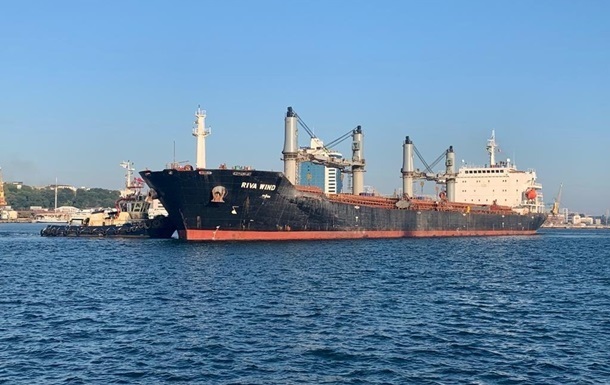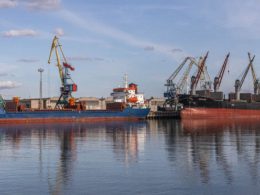Ukrainian Danube ports have marked a significant milestone in 2023 with the inauguration of 23 new terminals and 20 cargo handling points within the Danube cluster. Yuriy Lytvyn, Chairman of the "Administration of Sea Ports of Ukraine," proudly announced these achievements, highlighting the dynamic progress made within the Ukrainian maritime sector.
Over the span of 11 months this year, Ukrainian ports handled a total of 52.8 million tons of cargo, a substantial increase from the 45.6 million tons recorded in 2022. The breakdown comprises 47.9 million tons of exports and 4.6 million tons of imports. This robust performance reflects the sector's commitment to growth even in challenging military conditions.
Lytvyn emphasized that the Danube cluster's ports not only expanded their infrastructure but also enhanced operational efficiency. The addition of 23 terminals, a boost in pilot numbers from 14 to 78, and improvements in dispatching and operational processes, including night-time vessel operations and leading-edge navigation methods, underscore the comprehensive advancements made.
Summing up the performance of the Ukrainian maritime corridor from August 10, 2023, Lytvyn reported that the ports of Odesa processed 6.4 million tons by November 30, showcasing sustained operational excellence.
In addition to domestic accomplishments, Lytvyn highlighted the proactive engagement with international organizations on restoration and reconstruction projects. During the conclusive meeting with the Ministry of Infrastructure on December 12, the Chairman reported on the enterprise's systematic collaboration with international entities.
Looking ahead to 2024, the following priorities have been identified by Lytvyn:
- The primary focus will be on increasing maritime port throughput by concentrating efforts on enhancing cargo handling capacity in maritime ports.
- The goal is to position the Danube port cluster as a leading alternative export route.
- Initiatives will be undertaken to restore damaged port infrastructure, which has suffered due to Russian attacks.
- The enterprise aims to pursue investment projects and establish public-private partnerships as part of a strategic approach to drive sustained growth.
In terms of international collaboration, the enterprise has been recognized as a significant participant in the global maritime community, according to Lytvyn. Additionally, it has engaged in collaborative projects with international organizations, specifically focusing on restoration and reconstruction initiatives.
- On 17 July 2023, the Russian Federation withdrew from the Black Sea grain initiative, an UN-brokered agreement to unblock Ukraine’s ports and export its grain, and stated that it would not guarantee that it will not attack civilian vessels after that date. The Ukrainian defense ministry mirrored Russia’s threats to ships at sea.
- After that, Russia launched massive missile attacks on Odesa and the region with missiles and drones, destroying ports, granaries, residential buildings, and other facilities.
- NATO has condemned the Russian attacks but has thus far only vowed to increase surveillance. Meanwhile, Ukraine has changed the course of its grain corridor so that it stays within Romanian waters. Reportedly, the US declined Ukrainian requests to escort commercial vessels in the waters of NATO countries to ensure that the grain corridor keeps functioning.
- The Institute for Study of War has observed that Russia seems intent on enforcing a de-facto naval blockade of the Black Sea by intimidating civilian vessels in it. Particularly, a Russian warship told a ship that sailing to Ukraine could get it treated as a military target, according to an intercept shared by Ukrainian officials on 28 July.
- Nevertheless, on 31 July, merchant vessels sailed through Ukrainian territorial waters to ports on the Danube and Ukraine’s Navy opened up registration for civilian ships to use the new corridors in the Black Sea.
- Since then, ships are successfully sailing from Ukrainian ports through the corridors.
Related:
- 30 ships stop in Danube after Russia hits Ukrainian river
- Russian air attack damages Danube River port
- Romania finds possible drone fragments, condemns Russia attacks on Ukraine Danube ports
- Russia's explosive drones target Odesa grain facilities




